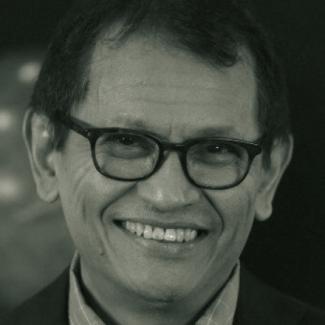Development cooperation
Aid is problematic, but indispensable
 picture-alliance/ASSOCIATED PRESS/Fatima Tuj Johora
Where development schemes are nationally owned, aid works: a three-year old plays with her mother’s cell phone during a storm in a Bangladeshi cyclone shelter in 2022.
picture-alliance/ASSOCIATED PRESS/Fatima Tuj Johora
Where development schemes are nationally owned, aid works: a three-year old plays with her mother’s cell phone during a storm in a Bangladeshi cyclone shelter in 2022.
Official development assistance from the developed to the developing countries has steadily increased, reaching $ 223 billion in 2023 according to the OECD (Organisation for Economic Co-operation and Development). However, problems with aid and its delivery are widely acknowledged. They occur on both the donor and recipient side. The dynamics show that the politically correct term “development cooperation” is a misnomer.
On donor governments’ side, problems of coordination, bureaucracy and fragmentation are common. A large number of intermediaries and agencies are involved. Disparate actors have different interests, and the results often include uncoordinated delivery of aid and auditing disputes. The multitude of development institutions that all use administrative rules of their own put a severe strain on the government systems of recipient countries. All too often, moreover, donor governments have clear ideas of what kind of programmes they want and do not want to support.
On the side of recipient countries, limited capacities to plan, weak governance systems and institutional bottlenecks constrain aid effectiveness. Systemic challenges include over-ambitious targets, unrealistic timeframes and budget constraints. Obviously, the self-interest of policymakers plays a role too.
Efforts to improve aid effectiveness have been unsatisfying. Part of the problem is that it is very difficult to tackle long-term issues of governance and institution building. In this context, it matters very much that the relationship between donor and recipient governments is asymmetric. Donor governments respond to their own constituencies, rather than to the people who are in need in recipient countries. The result is a serious lack of accountability for what really matters. In particular, long-term development requirements often become an after-thought.
Troubling sovereign debt burdens
Problems associated with development lending also abound. Among several issues, low repayment capacity of developing countries is a most serious one. This emerged especially on the back of the Covid-19 pandemic. Trade stalled, supply-chains were disrupted, and commodity prices fell. Increased sovereign-debt burdens curtail the development capacities of the countries concerned. If meaningful debt restructuring and other relief programmes cannot be arranged, the quality of life of millions of their citizens is likely to be jeopardised.
At the same time, the call for more aid (with a shift from loans to a larger component of grants) is louder than ever, not least because the international community must make up lost ground after the Covid pandemic. Humanitarian needs are mounting in many developing countries due to wars, disrupted supply chains and climate emergencies. Last year alone, close to 800 million people across the world were facing hunger, including a 10 % increase in the number of people facing life-threatening hunger.
The good news is that aid is not as dysfunctional as some critics argue. No, it does not inherently lead to aid dependency. The plain fact that many countries have grown out of aid eligibility shows that the inflow of foreign funding is not simply a trap that corrupts recipient governments and thwarts their nations’ development. It is also true, however, that the less successful countries that remain eligible face greater challenges than the successful ones. Accordingly, it is inherently harder for international agencies to deliver the expected results there.
Iwan J. Azis is an economics professor at Cornell University in the USA and a visiting professor at the University of Indonesia.
http://iwanazis.com/


